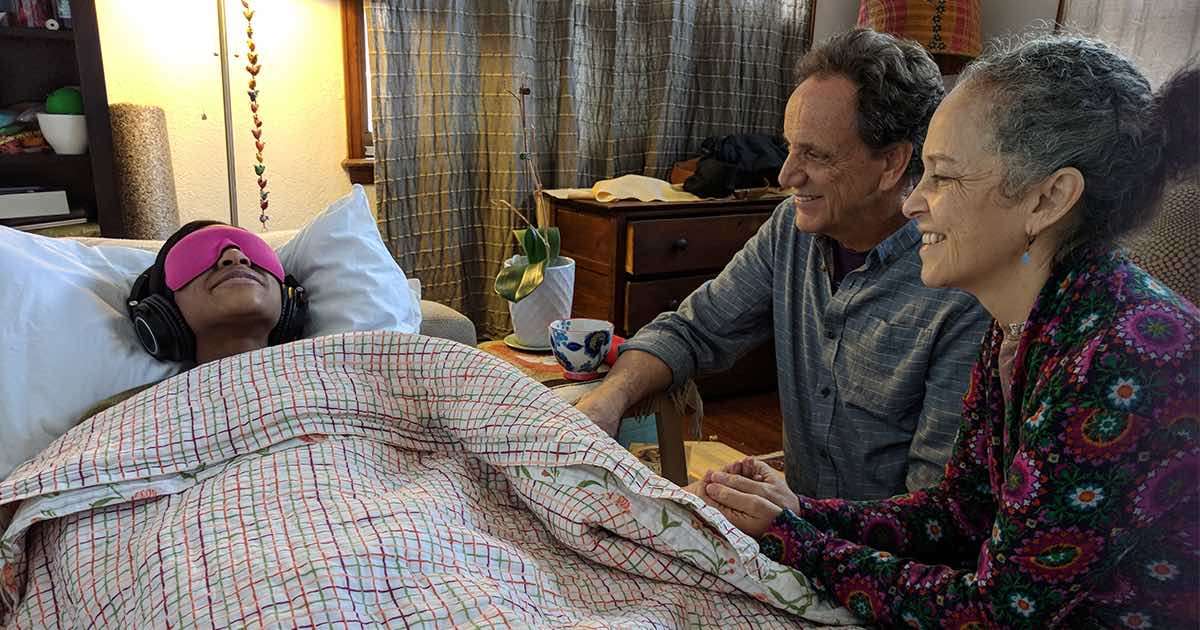Healthy Gut Bacteria Can Reduce Risk of Asthma and Food Allergies in Children, Experts Discover
Babies and young children with diverse bacteria in their gut are less likely to develop allergy-related wheezing and asthma, says new study.

Encouraging brain injury research—conducted in test tubes, lab animals, and a few small studies in people—points to the potential of psychedelic drugs to limit brain damage after injury, and even stimulate the birth of new neurons to replace impaired ones.
They can open the learning windows that allow the brain to acquire new skills.
One recent study, published in the journal Nature, found lab animals taking psychedelics adopted skills as adults that were previously limited to childhood.
This has been shown in psychedelic studies before when Johns Hopkins found that MDMA, also known as ‘ecstasy' reopened "critical windows" of brain development typical of singular periods in life when the brain is more sensitive to environmental stimuli.
These critical windows are key to post-dose therapy sessions in states where psychedelic-assisted therapy is a legal medical practice. The brain is now open to new ideas and a skilled psychoanalyst can help patients recover from serious trauma in those key moments.
Much of this has been known for years, but now, Johns Hopkins is further opening these doors of discovery by identifying this critical window reopening can be induced by other compounds, such as psilocybin, the psychoactive ingredient in psychedelic mushrooms and LSD.
Furthermore, scientists at the famous institution have found that these critical window periods form naturally in humans following a traumatic brain injury or stroke, and psychedelics can keep that critical open for longer than would normally be the case.
The idea is that psychedelic therapy could keep the critical windows open long enough to recover far more function than would otherwise be the case.
Another way in which some psychedelics seem to be able to help the brain recover from a traumatic injury is by controlling inflammation in the brain. Inflammation would be a natural and healing response to trauma, but so many Americans live lives of dysregulated inflammatory systems, which can be negatively influenced by poor diet, lack of exercise, stress, and exposure to household chemicals or air pollution.
As a result, the turning off of the inflammatory systems that would naturally follow their activation doesn't occur, and can lead to neurons in the brain being damaged.
One way that psychedelics decrease inflammation is by binding to serotonin receptors called 5-HT2a, which display a dual role of controlling inflammation and also causing the hallucinogenic effect typical of psychedelics.
Glial cell-derived neurotrophic factor, a growth compound created in the brain that is responsible for the growth and recovery of injured neurons, also seems to be stimulated into existence by psychedelic influence.
National Geographic reports several labs are already testing dimethyl-tryptamine or DMT, for this very purpose of binding to 5-HT2a and stimulating the production of glial cell-derived neurotrophic factor.
"Rats slowly infused with low doses of DMT after a stroke had fewer damaged tissues and more extensive recovery," they wrote. "Brain levels of anti-inflammatory compounds and sigma-1 proteins were abundant in the treated animals."
SHARE Yet Another Potential Therapeutic Use Of Psychedelics…
Be the first to comment